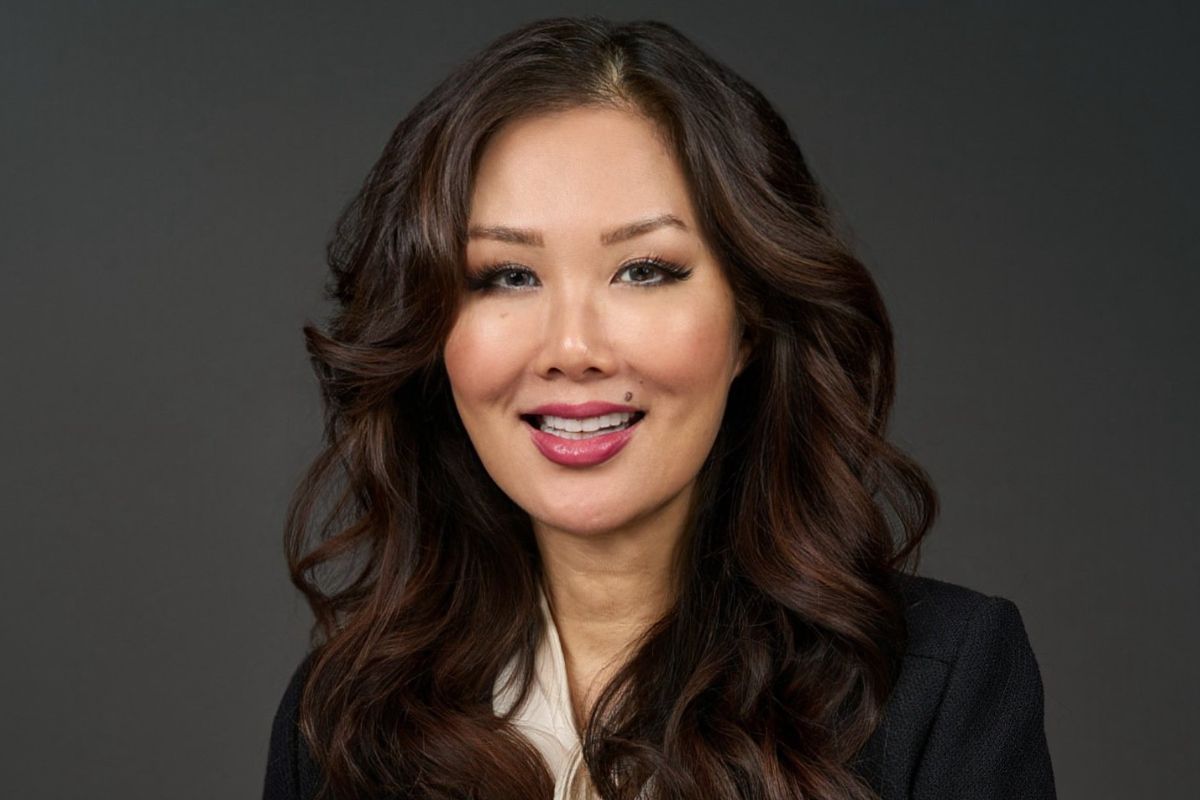The US$130 billion beauty industry is among the top industries dominated by women, however, Annie Young-Scrivner tells The CEO Magazine that she believes there could be better representation of women in leadership roles. Fortunately, there’s something to be said for the fact that Wella’s Board of Directors are 64 percent women.
It’s been just over three years since Young-Scrivner was appointed CEO. It was the vast network of salon businesses connected to Wella Company coupled with the creativity woven within its DNA that really spoke to her.
“We service over 500,000 salon businesses. One business could have 2,000 store chains,” she says. “And what I love about that is every healthy economy has to have healthy small business. And so we support small business.”
This interconnected web, in which Wella Company is at the center, comprises industry professionals, social influencers, ambassadors, followers, employees and customers who each interact with the brand in some way.
Having worked for more than seven years building the influential Starbucks brand, Young-Scrivner is all too aware of the synergy that occurs with the right investments into people and customers.
“You have the opportunity to make people be their true selves instantly. And I think that’s really inspiring.”
“Howard Schultz, who was CEO and Chairman of Starbucks, really taught me about humanity and community. And how with every single store you’re part of that community, so how do you give back?”
Growing up Young-Scrivner permed and cut hair for her friends. And, it was this unpaid side hustle that showed her just how incredibly dynamic and transformative the beauty industry can be.
“You have the opportunity to make people be their true selves instantly. And I think that’s really inspiring,” she reflects.
With iconic brands like ghd, OPI, Nioxin and Sebastian Professional churning out next-gen products, Young-Scrivner explains how the ‘skinification of hair’ is unlocking the full potential of Wella’s portfolio of brands like never before.
“I’ve always been focused on the consumer, in anything that I’ve done,” she says “And if you understand the consumer and you understand the white space or where there’s a lot of friction, you could find solutions that’s going to delight her.”
Success from within
While historically the 144-year-old company has been associated with hair color, that’s set to change as it continues to push the boundaries of innovation and redefine itself as a leader across hair color and care, nails and beauty tech tools.
“People are learning more about hair. And hair is going through that transformation period. And we’re the right company to take the consumer through that journey,” she insists. “When you look at the sizing, we can triple our size very easily, just with the repositioning of the categories that we go after.”
Describing her role as an “orchestra conductor”, Young-Scrivner adds that in order to delight the consumer, providing a framework and the freedom to create are the nuts and bolts of good leadership in the consumer space.
This is where team building comes into play – a skill that was learned during the early days of her leadership journey.
“I enjoy building teams,” she enthuses. “I’ve always made sure that it’s always about people. Having people in the right role in the right place is definitely number one.”
Becoming a district sales leader for Frito-Lay (a subsidiary of PepsiCo) at the age of 22, Young-Scrivner found that it wasn’t so much her gender, but her age that taught her a vital lesson: respect is earned rather than attached to a title.
“Everybody that I led was 45 or older,” she remembers. “So really learning from them, understanding best practices and then taking those and transmitting it around the team, we became the number one district that year by galvanizing the entire team working together.”

“It’s to create the vision where you can inspire people and it’s winning not just their minds, but also their hearts. And then galvanizing the team to work together.”
Now the tide has turned and it’s Young-Scrivner whom others come to for advice, based on her two decades plus experience in reinventing and driving profitable growth for world-class brands.
Looking back over the course of her career, she believes that building great teams comes down to knowing where you fall short as a leader and fully harnessing the abilities of the collective.
“Recognize that no one is perfect,” she advises. “You have your strength, you have your opportunities, and be humble enough to understand that where your opportunities are is where you need others.”
With this in mind, last Valentine’s Day marked an important turning point for the company. ‘We Own Our Way’ (WOW) Program – an employee-based equity plan – was established, giving employees the opportunity to benefit from the company’s financial success.
According to Young-Scrivner, it’s moves like this which raise the bar in the way people show up and contribute to the business.
“All 6,000 people across the globe are now owners in the Wella Company. And that is something that is really amazing. And we’re incredibly proud. So last Valentine’s Day, we said, ‘Let’s show our love to our employees’, and that’s what we gave out,” she says.
So if team work makes the dream work, how does Young-Scrivner define the type of teams needed to build successful businesses?
“It’s to create the vision where you can inspire people and it’s winning not just their minds, but also their hearts. And then galvanizing the team to work together,” she affirms.
Paying it forward
Like many inspiring leaders, Young-Scrivner had mentors that helped her along the way, most notably former PepsiCo CEO Indra Nooyi and Starbucks’ Howard Schultz that headed these companies while she was working for them at a leadership level.
Having had the privilege of working within 30 countries around the globe may not seem like the most conventional path to innovation for some, but for Young-Scrivner every trip is an opportunity to learn something new.
“I think that we should all experience life and understand that the world’s actually really small,” she says. “And you could get innovation and new ideas from different industries, different cultures, and it can be moved around. I think there’s so much about hair that’s part of fashion that isn’t as talked about.”
“So it’s really understanding the consumer journey and what her needs are.”
Whether it’s a dish in Shanghai, an up-and-coming fashion designer in New Zealand or nail products from Japan, Young-Scrivner doesn’t shy away from sharing these insights with her team.
It’s also clear that the passion she communicates for the products is largely driven by a desire to understand the consumer.
“At the end of the day, it’s about really understanding what the consumer needs are and then how do we create innovation that delights us?” she explains. “And it might be something that you don’t even know. And we created a great innovation for it. So it’s really understanding the consumer journey and what her needs are.”
She admits that since investing in consumer feedback, the company is in a much better position to capitalize on and scale up what’s working well and uncover missing opportunities for growth directly from the end user.
Your leadership footprint
When asked her advice for aspiring CEOs, Young-Scrivner has two tips:
“I would say that number one, think about your career in five-year increments,” she says. “What type of role would you want in five years? And then really think through what are the skill sets that you need. And then even in your current role, start to think through how you could develop that skill set. So is it a special assignment? Is it an extra project?”
She also advocates widening your horizons when it comes to contemplating career moves, what she calls taking “calculated risks”.
“It’s not the most popular role, but it could actually stretch you. Or it’s moving to a different function or a different part of the country or a different part of the world.”

“I think that’s really important to leave your legacy.”
And, as one chapter in her life ends and another door opens, Young-Scrivner is always mindful of how her impact lives on into the future.
“Whether it was PepsiCo or Starbucks, the businesses that I’ve left, they continue to thrive,” she says. “I think that’s really important to leave your legacy. And some of the innovations that you’ve launched, have they grown? Have they done better? I think this is really important.”
As far as Young-Scrivner’s leadership legacy with Wella Company is concerned, delving into consumer trends and insights pairs well with the focus on research and quality that are already synonymous with the brand.
“I think that we’re tapping into the consumers in the right way, having the right conversations, which is very exciting. When you combine that with the innovation, it’s magic,” she says smiling.







